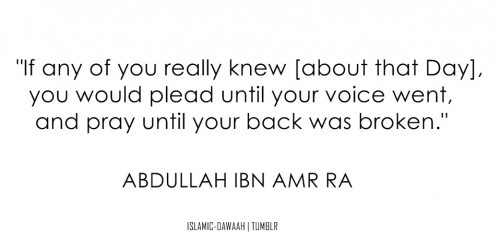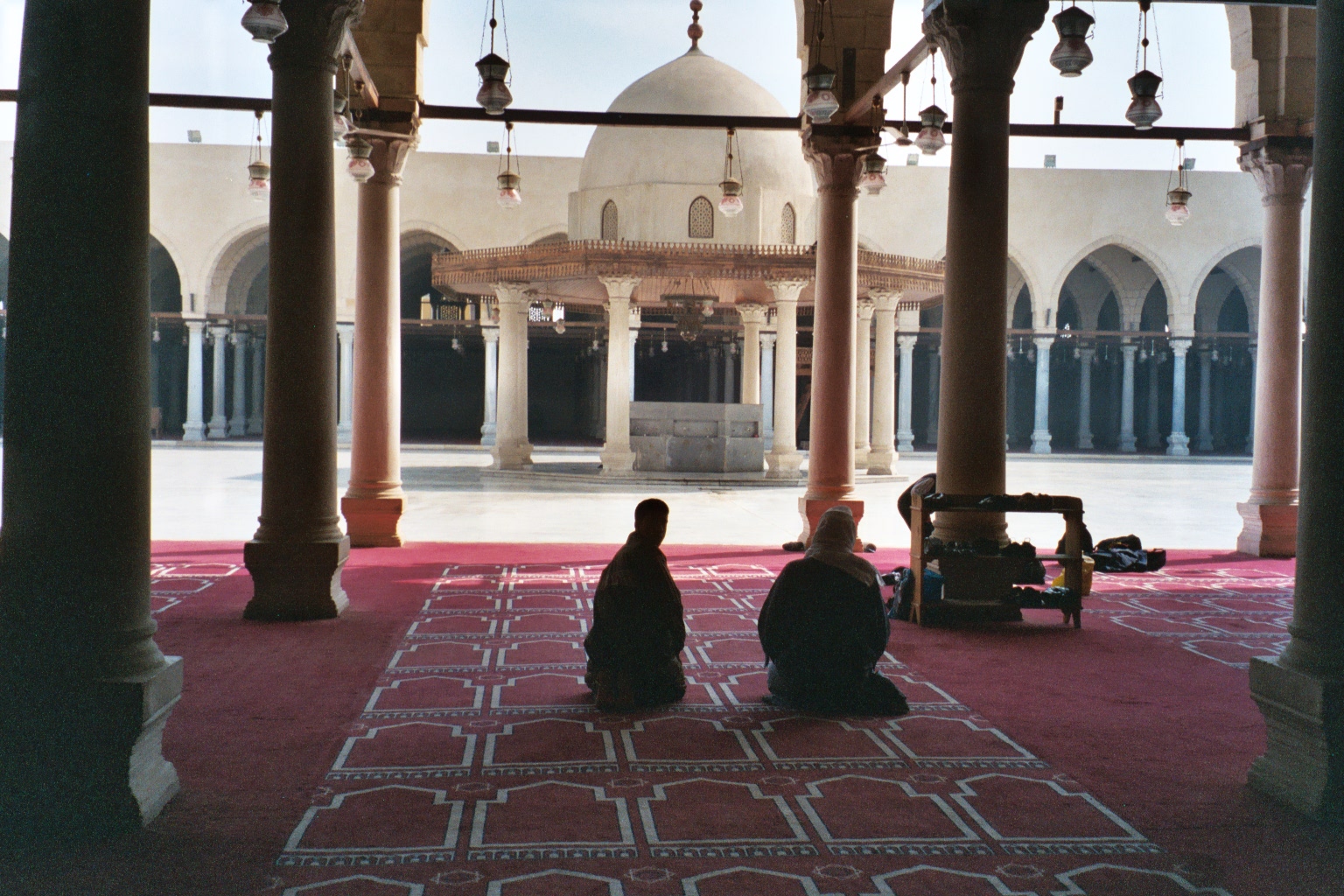In the name of Allah Most Gracious, Most Merciful
 |
His
name and family
He
is known as ‘Abdullah ibn ‘Amr ibn al-‘Ās RA although at birth
he was named al-‘Ās, which means the disobedient one. When he
embraced Islam, in the seventh year of the Hijra, the Messenger, upon
him be peace, renamed him ‘Abdullah. He was from the Sahm branch of
the tribe of Quraish. His nickname (kunya) was Abu Muhammad although
some called him Abu Abdul Rahmân. His mother was Riâtah bint
Manbah. His father was the famous companion ‘Amr ibn al-Ās RA, the
celebrated conqueror of Egypt. His father was very young when
‘Abdullah was born, according to most sources, he was only twelve
years old. ‘Abdullah RA became Muslim before his father. It is
reported that the Messenger Muhammad SAW, used to show preference to
the son over the father because of his superior knowledge and intense
worship.
His
ability to read and write.
‘Abdullah RA memorised the whole Qurân and was able to read and write. He was known to have read the pre-Islamic scriptures before he embraced Islam and it is reported that he continued after becoming Muslim. He was one of the few companions who wrote down the words of the Nabi SAW, upon him be peace, during his lifetime. He sought the Rasulullah SAW specific permission asking ,‘May I write down everything I hear from you in the states of contentment and anger?’He, upon him be peace, replied, ‘Yes, for I speak nothing but the truth.’The other great narrator of the sayings of the Rasulullah SAW, upon him be peace, Abu Hurairah RA, used to say,‘there is no one more knowledgeable of the sayings of the Rasulullah SAW, upon him be peace, than me, except ‘Abdullah ibn ‘Amr RA.
 |
He used
to preserve them in his heart and I used to preserve them in my
heart; but, he used to write them down and I did not.’It
is reported that ‘Abdullah RA used to say that he memorised one
thousand sayings from the Rasulullah SAW. He reported 700 hadith.
Eighteen were agreed upon by Muslim and Bukhâri, eight can be found
in Bukhâri alone and twenty in Muslim alone. Although it is commonly
understood that he was more knowledgeable of hadith than Abu Hurairah
RA; as he resided in Egypt where there were less people to relate
from him than in Madina, the number of traditions related by him is
less than some of the other great companions including Abu Hurairah
RA and ‘Aisha bint Abu Bakr RA, Mother of the Believers, may Allah
be pleased with them all.
The
intensity of his worship and abstinence from the world.
‘Abdullah RA was one of the most intense worshiper, fasting for days without a break and going many nights without sleep, until the Rasulullah SAW, forbade him from fasting without breaks and abstaining from intimacy with his wife. He said,‘surely your eyes have rights upon you, your family have rights upon you, so sleep and break your fast. Fast the three days in the middle of the month for that is the eternal fast.’When ‘Abdullah RA said,‘but I can do more than that,and he continued with his intense fasting; the Rasulullah SAW, told him,‘there is no fast better than the fast of David, that is, to fast one day and eat one day.’Then he limited him to fasting every other day.
He was also told not to read so much Qurân but to limit his completion of the whole Qurân to only once a month. ‘Abdullah RA said that he can do more than that and was then told ‘complete it every seven days’, which he did. He had a very emotional relationship with the Qurân. He used to say that to shed tears out of fear of Allah was more beloved to him than to spend a thousand dinâr in charity. He lost his sight in the later years of his life.
 |
| Mosque of Amr Ibni Al As..father of Abdullah bin Amr RA. |